42 facts about Jackie Robinson on his 100th birthday
Jan. 31 marks the 100th anniversary of the birth of Jackie Robinson, who changed sports and American history forever by breaking baseball's color line with the Brooklyn Dodgers.
The centennial anniversary of his birth will be honored throughout 2019. Among the events planned to commemorate Robinson are a season-long tribute by Major League Baseball, as well as the official opening of the Jackie Robinson Museum in New York.
In celebration of Robinson's milestone birthday, here are 42 facts about arguably the most important athlete in history:
1: Jackie got his middle name, Roosevelt, in honor of former president Theodore Roosevelt.
2: Though he was raised in Pasadena, Calif., Robinson and his four older siblings were born in Cairo, Ga. His mother, Mallie, relocated the family to California in 1920 after his father left the family.
3: Jackie's older brother, Mack Robinson, was a star sprinter and long jumper. Mack won a silver medal in the 200 meter at the 1936 Berlin Olympics, finishing 0.4 seconds behind gold medalist Jesse Owens' world-record time. Mack also set NCAA track records at the University of Oregon.
4: Robinson excelled at multiple sports besides baseball. In high school, he played baseball, football, basketball, track, and tennis, but dropped the latter in college.
5: Robinson's UCLA athletic career was one of the greatest in college sports history. He was a scoring champion in basketball, averaged a nation-best 20 yards per punt return and 12 yards per carry on the gridiron, and was an NCAA long jump champion in track. However, he only hit a meager .097 during his one season of baseball with the Bruins.
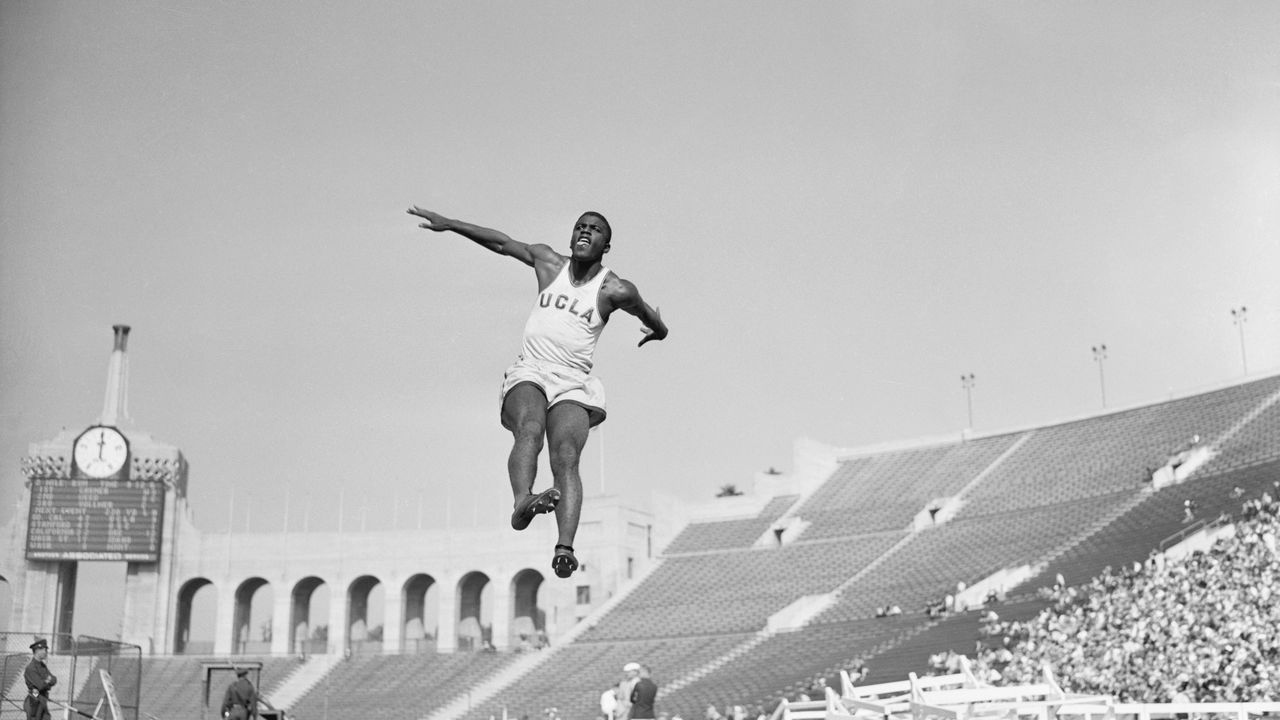
6: Robinson was the first UCLA athlete to earn varsity letters in four sports.
7: Jackie met his future wife, Rachel, in 1941 at UCLA. They married in 1945 and had three children: Jackie Jr., Sharon, and David.
8: He played a season of football for the semi-pro and integrated Honolulu Bears in 1941, then briefly played for the Pacific Coast Football League's Los Angeles Bulldogs later that year. However, the attack on Pearl Harbor ended Robinson's professional football career after just two games for the Bulldogs.
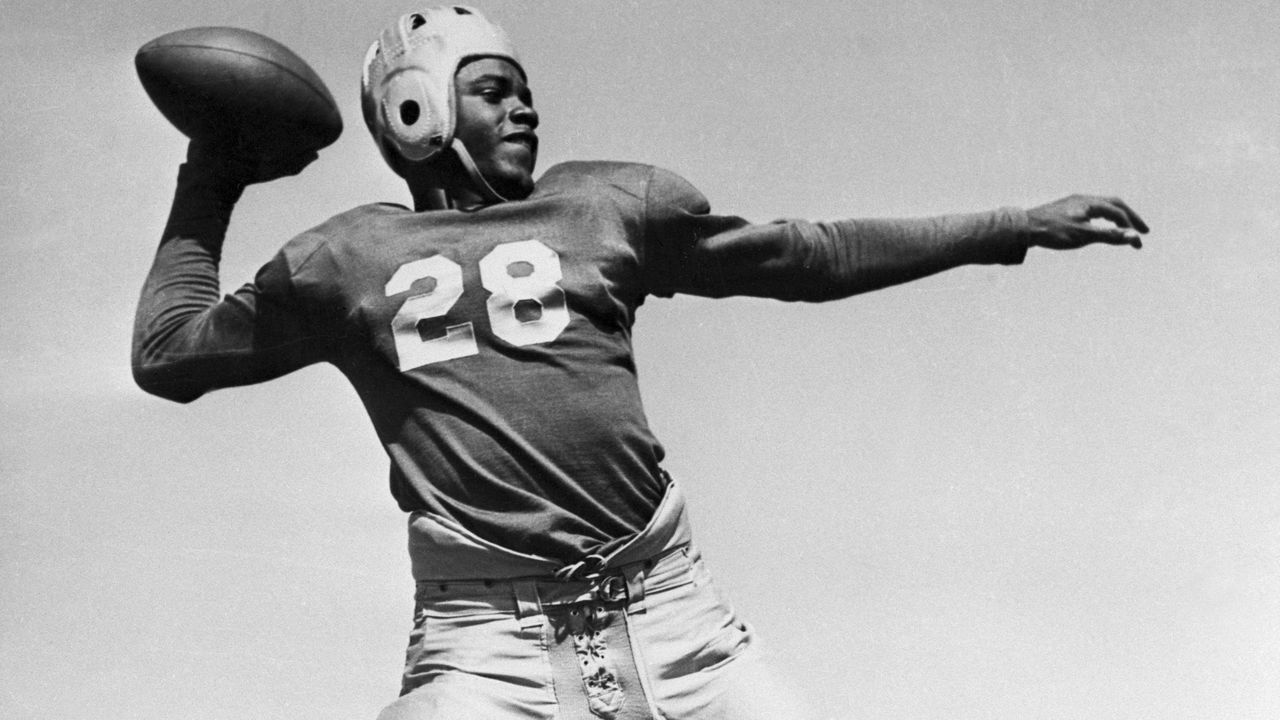
9: While in the Army during World War II, Robinson refused orders to move to the back of a segregated bus (just as Rosa Parks would do over a decade later) and received a court martial. He eventually won his case, and was honorably discharged from the military.
10: Robinson's first professional baseball contract with the Negro American League's Kansas City Monarchs in 1945 paid him $400 a month.
11: The Boston Red Sox gave Robinson and several other black players a tryout in 1945. But the tryout was set up for political purposes, and he later said they knew the team was "wasting our time." (The Red Sox were the last team to integrate, three years after Robinson retired).
12: Some established Negro League stars, including future Hall of Famers Satchel Paige and Josh Gibson, were upset that the Dodgers had passed them over for Robinson.
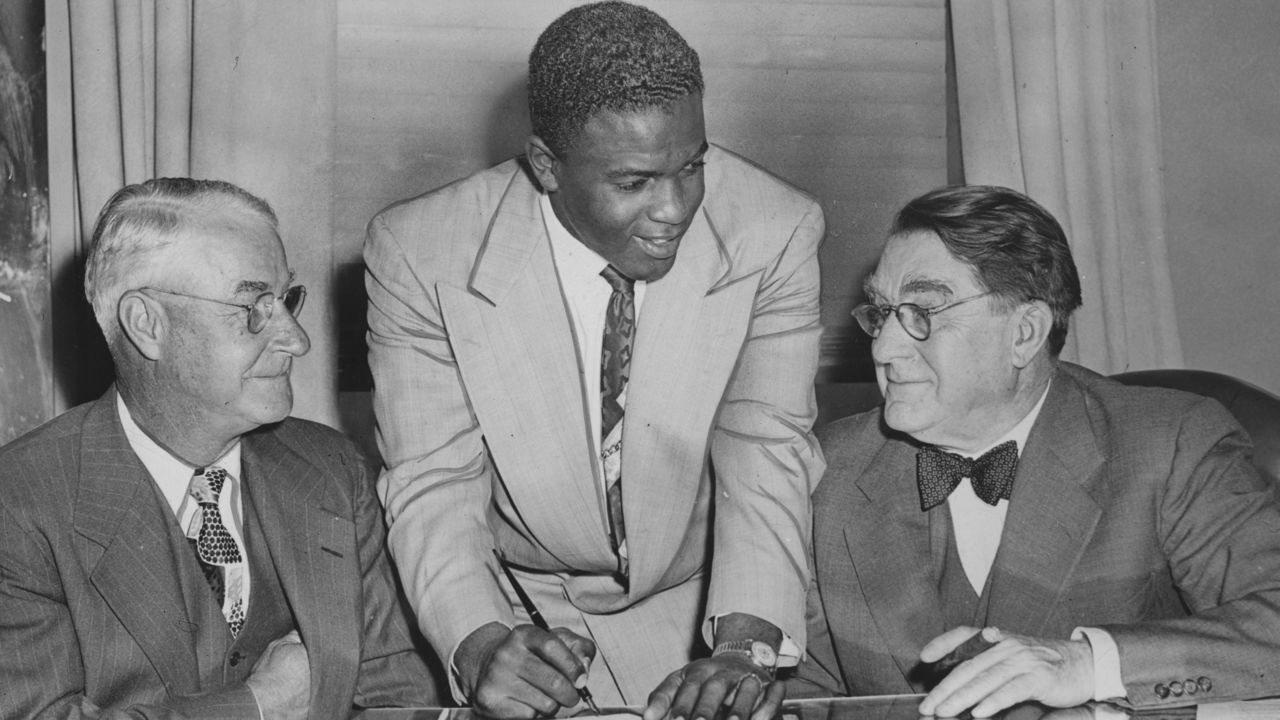
13: Branch Rickey only chose Robinson to break the color line with the Dodgers after he promised not to react to the racism that would come his way.
14: Robinson quieted the doubters in his first game for the Triple-A Montreal Royals, a road contest against Jersey City. Robinson keyed a 14-1 Montreal win by going 4-for-5 with a homer, four runs scored, and two steals.
15: In 1946, Robinson captured the heart of Montreal by leading the Royals to the International League pennant and Little World Series title. After the Royals clinched the Little World Series, celebrating Montreal fans chased Robinson down the street for blocks, leading sportswriter Sam Maltin to pen this famous line: "It was probably the only day in history that a black man ran from a white mob with love instead of lynching on its mind."
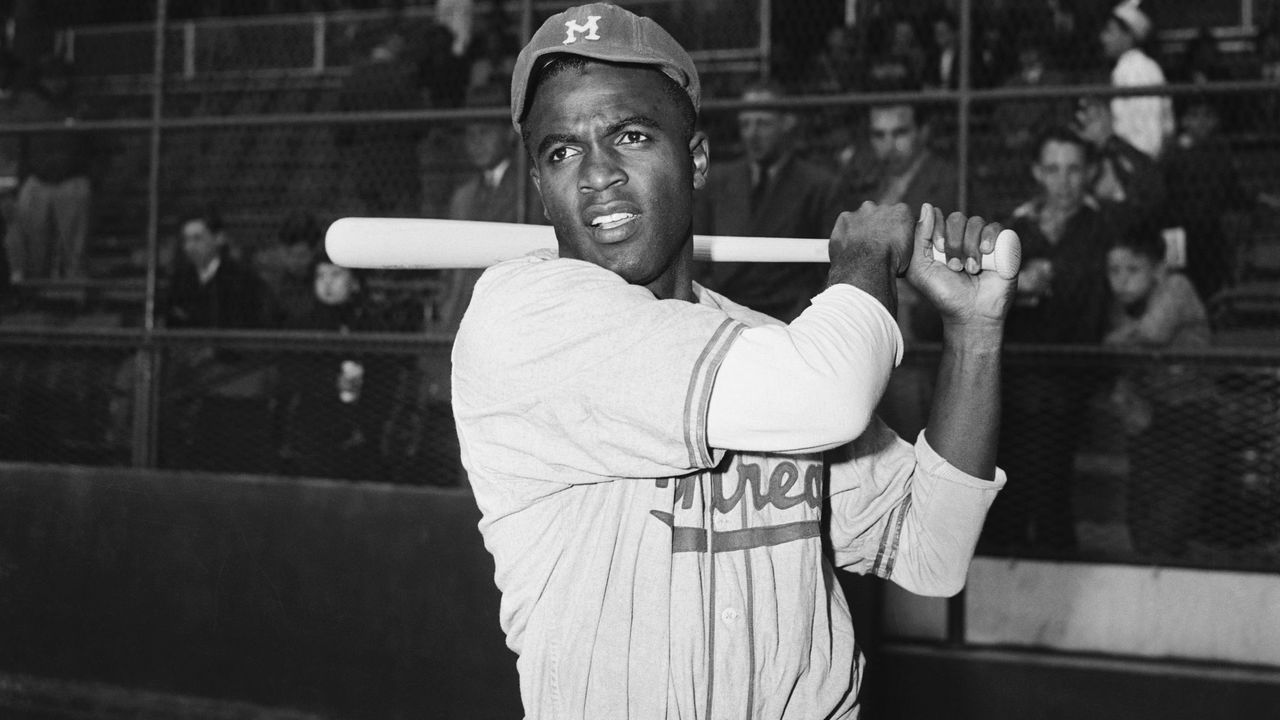
16: Despite his performance in Montreal, some Dodgers players signed a petition to management in spring training of 1947 demanding Robinson not make the team.
17: Just 26,623 fans attended his historic debut with the Dodgers at Ebbets Field on April 15, 1947. Robinson didn't fare well that day, going 0-for-4.
18: His first big-league hit was a bunt single off the Braves' Glenn Elliott on April 17. The following day, Dave Koslo of the New York Giants surrendered Robinson's first home run at Polo Grounds.
19: Robinson's debut marked the first major-league appearance by an African-American in 63 years. He followed in the footsteps of brothers Moses and Weldy Walker, who were briefly members of Toledo's American Association club in 1884, just before the color line was firmly established.
20: The worst abuse Robinson faced came from the Philadelphia Phillies, but it stopped after his teammates began screaming back at them. Phillies manager Ben Chapman, who led the taunts, had to grudgingly pose for a photo with him.
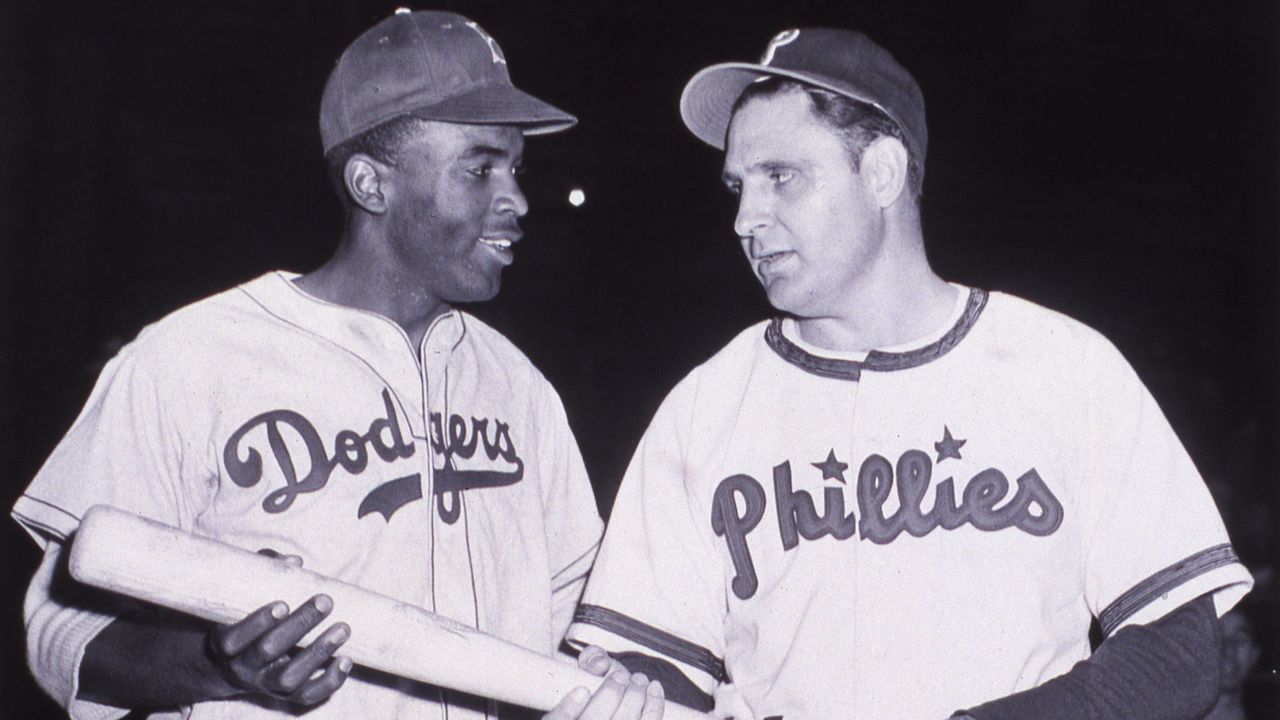
21: Robinson slashed .297/.383/.427 with 12 homers and a league-best 29 steals and 28 sacrifice hits as a rookie for the NL champion Dodgers in 1947. He was named the first-ever Rookie of the Year that winter, an award that MLB later renamed in his honor.
22: The 1949 season was Robinson's finest, as he led the league in batting and steals while compiling 9.6 bWAR en route to NL MVP honors. Incredibly, he took 59 more walks than strikeouts that year.
23: During his MVP season, the song "Did You See Jackie Robinson Hit That Ball?" by Buddy Johnson rose to No. 13 on the charts. Jazz legend Count Basie recorded his own version of the tune:
24: Robinson reluctantly testified before U.S. congress and the House of Un-American Activities in 1949 as part of the Paul Robeson hearings.
25: In 1950, Robinson portrayed himself in the biographical film "The Jackie Robinson Story". Legendary actress Ruby Dee co-starred as his wife Rachel. A 1950 review from the New York Times' Bosley Crothers was largely positive.
26: When the Giants' Bobby Thomson launched the "Shot Heard 'Round The World" to eliminate the Dodgers in the 1951 NL pennant playoff, Robinson was the last Dodger to leave the field, staying in position on the infield until he was sure that Thomson had touched every base.
27: The Dodgers' lone World Series win with Robinson - the first in franchise history - came in 1955. But Robinson wasn't a factor, as he hit just .182 for the series and was benched by manager Walter Alston in the decisive Game 7.
28: His final at-bat was a strikeout to end the 1956 World Series, which the Dodgers lost to the Yankees in six games.
29: Robinson was traded to the rival Giants after the 1956 season, but he elected to retire instead and the deal was voided. He officially announced his retirement through an article in "Look" magazine.
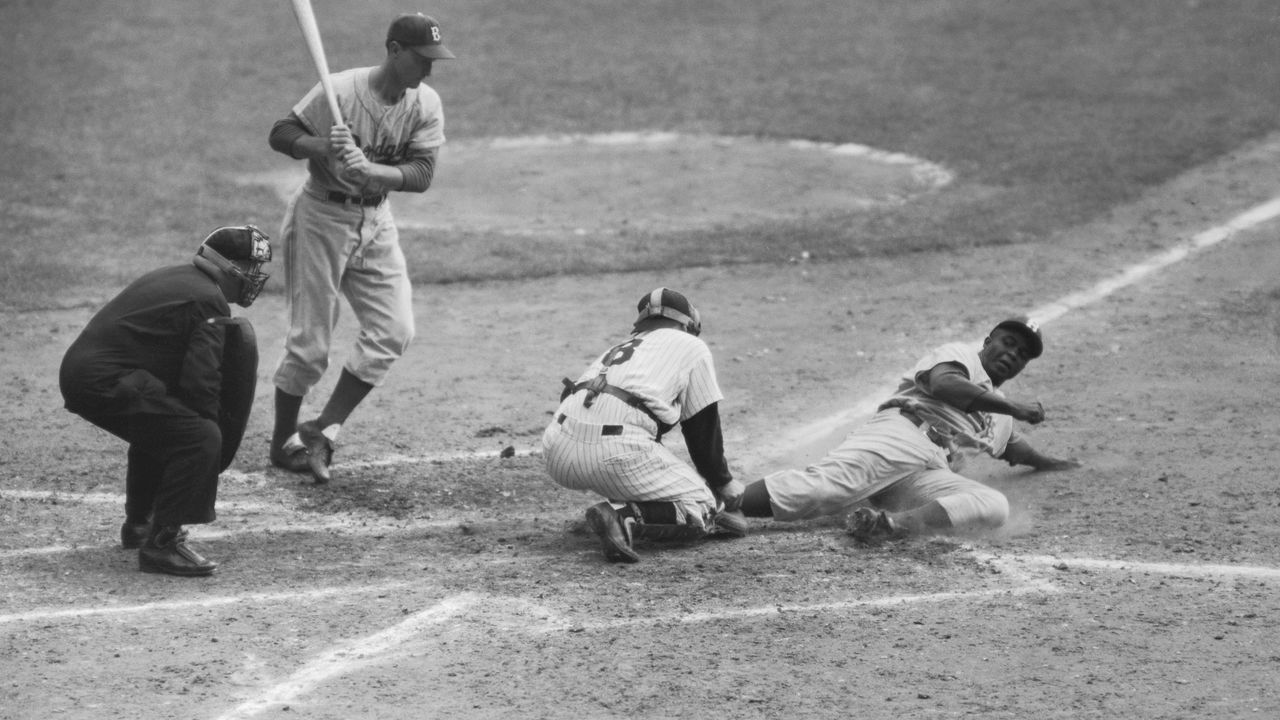
30: Robinson's 19 steals of home are tied for ninth all-time with Frankie Frisch, according to Baseball Almanac. However, those 19 steals of home are by far the most by any player whose career began after World War II.
31: Here are Robinson's career totals over 10 seasons with the Dodgers:
| Gm. | BA | OPS | H | R | HR | RBI | SB | BB/K | bWAR |
|---|---|---|---|---|---|---|---|---|---|
| 1382 | .311 | .883 | 1518 | 947 | 137 | 734 | 197 | 740/291 | 61.4 |
32: Robinson left baseball to become the vice president of New York coffee chain Chock full o'Nuts. The appointment allowed Robinson to break yet another barrier as the first African-American vice president of a corporation in United States history.
33: His business ventures expanded beyond coffee. Robinson was a founder of Harlem's Freedom National Bank in 1964; six years later he started the Jackie Robinson Construction Company, which focused on building affordable low-income housing.
34: Another post-playing career first for Robinson came in 1965, when ABC made him the first black baseball broadcaster.
35: Robinson got into the Hall of Fame on his first try in 1962. But he was far from a unanimous induction, receiving only 77.5 percent of the vote.
36: Later in life, he was active both in politics and the civil rights movement that he'd helped to start. Robinson was also openly critical of baseball for not having hired a black manager, something that wouldn't happen until after his death.
37: Tragedy struck when his eldest son, Jackie Jr., was killed in a car accident in 1971. He was just 24 years old.
38: Robinson's final public appearance came just nine days before his death, when he threw out the ceremonial first pitch before Game 2 of the 1972 World Series.
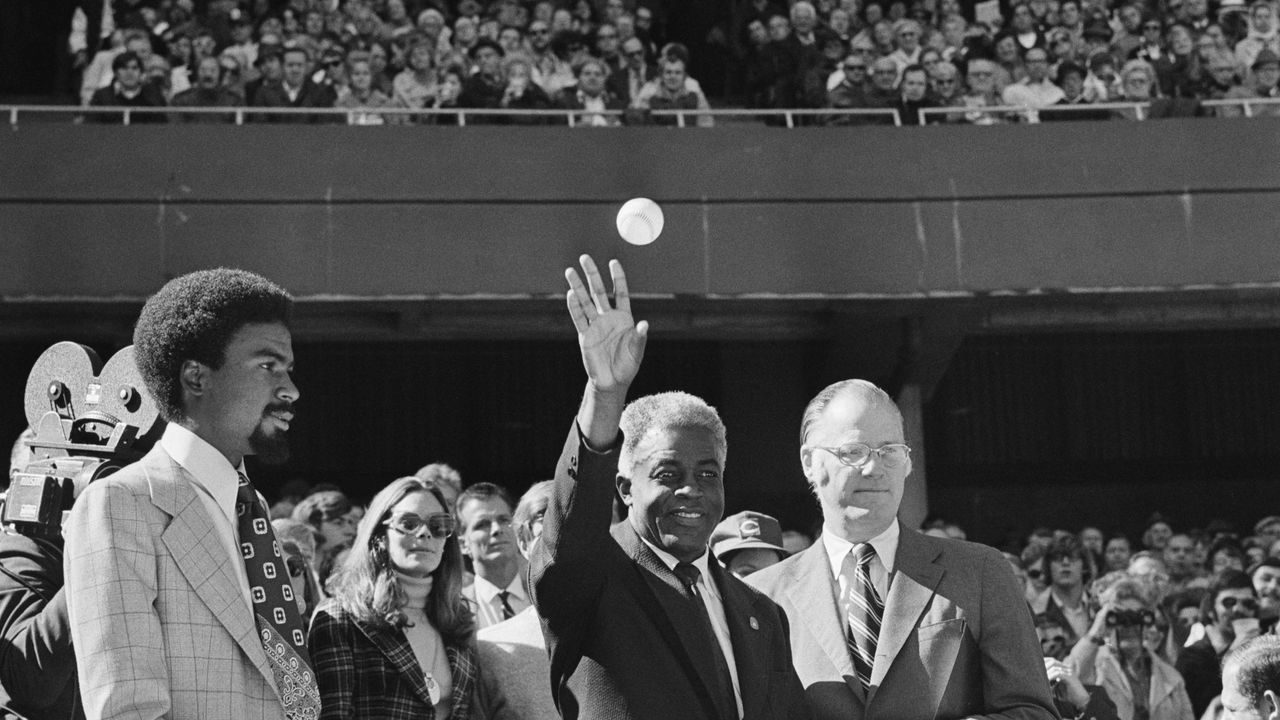
39: Jackie Robinson died Oct. 24, 1972, at age 53 after a heart attack and a longtime struggle with diabetes. After being eulogized by Rev. Jesse Jackson, he was buried in Brooklyn.
40: MLB retired Robinson's No. 42 across baseball in 1997, although several active players (most notably Mariano Rivera) were allowed to continue wearing it. Since 2007, all players have worn No. 42 every April 15, the anniversary of his historic debut. In 2014, the number was retired by UCLA across all its sports. The Dodgers had retired it in 1972.
41: Jackie's wife Rachel started the Jackie Robinson Foundation after his death. She's now 96, and remains on the Foundation's board of directors.
42: Perhaps Robinson's most famous quote: "A life is not important except in the impact it has on other lives."
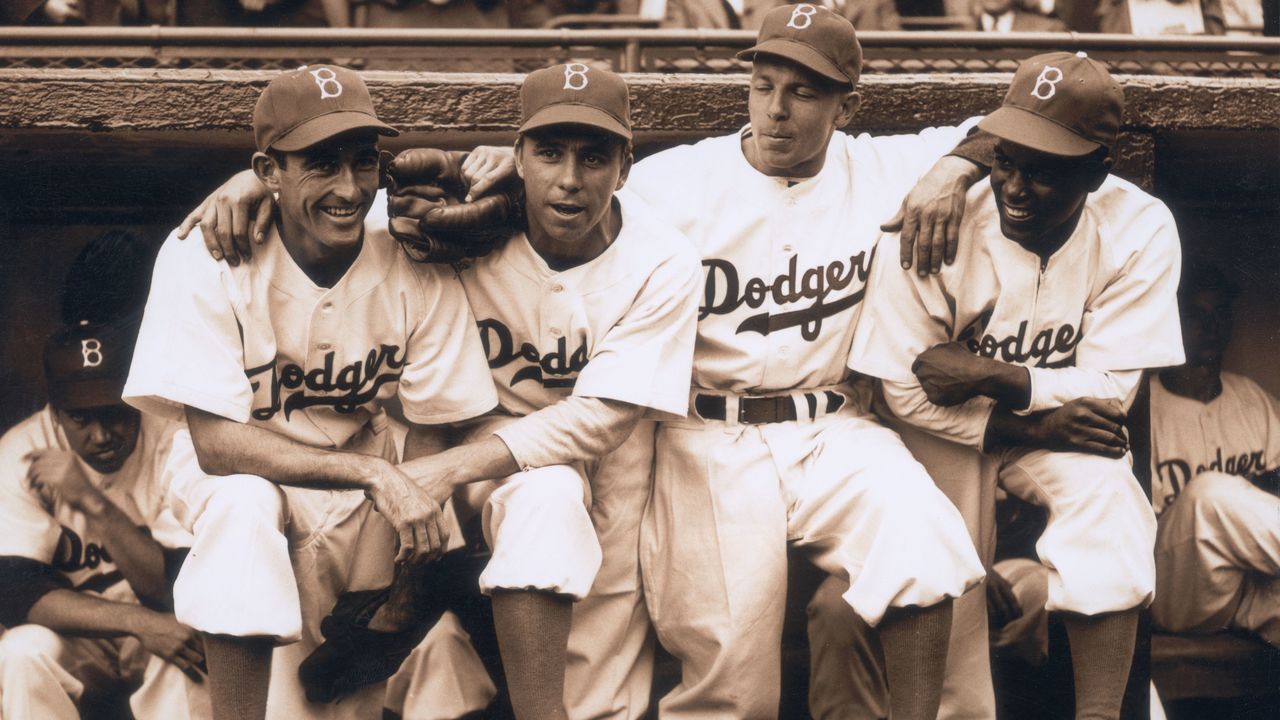
HEADLINES
- Strider says bone fragment led to season-ending elbow surgery
- Rockies' Freeland out 4-6 weeks with elbow injury, says pitch clock could be factor
- Pirates' Chapman drops appeal, will serve 1-game suspension Friday
- FAA investigating Rockies after 'unauthorized person' enters cockpit on flight
- Webb dominant for 7 innings as Giants blank D-Backs